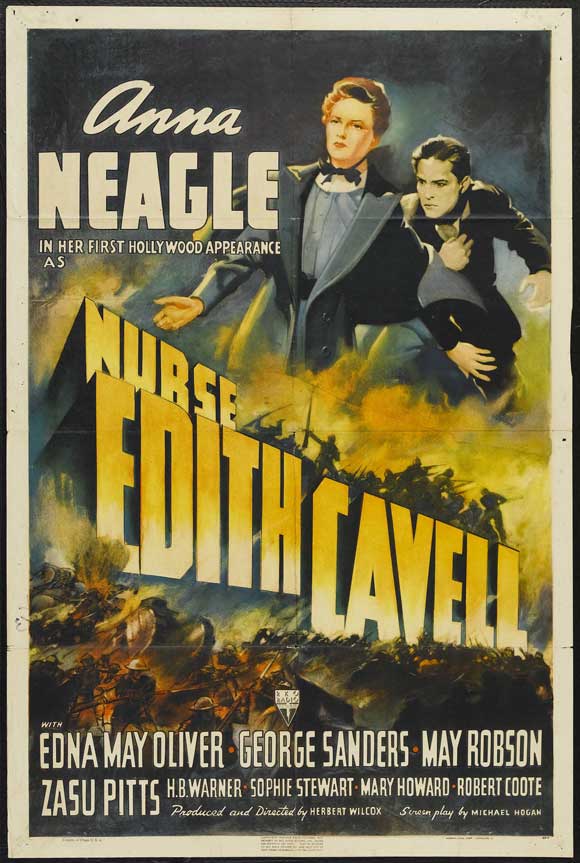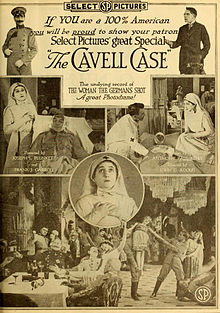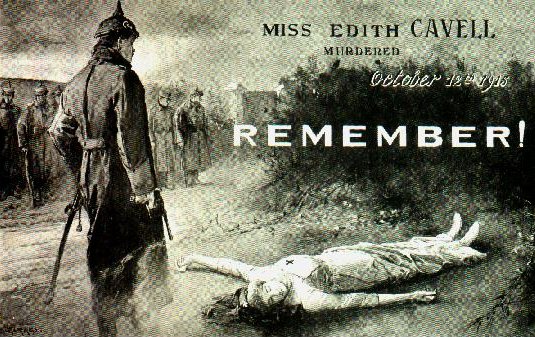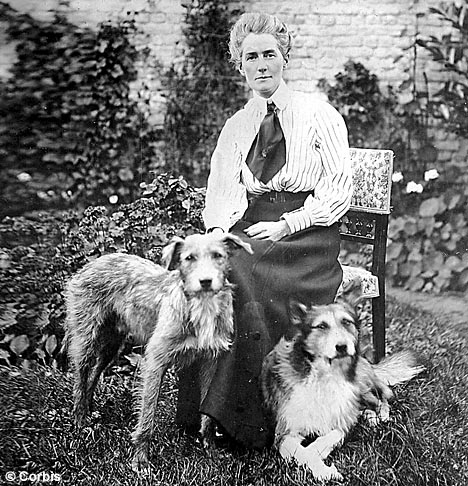
It’s not unheard of for nurses to serve in extraordinary ways, but Edith Cavell went far beyond her nursing duties during World War I. The British nurse and patriot was executed for treason during World War I. Both the British and American governments would propagandize her death to bolster support for the Allied cause.
Cavell was born on December 4, 1865. She trained at the London Hospital under Matron Eva Luckes and earned a reputation as a wonderfully capable nurse. In 1907, she was recruited by Dr. Antoine Depage to be matron of the newly established L’Ecole Belge d’Infirmieres Diplomees in Brussels. Cavell flourished there, and by 1910 she “felt that the profession of nursing [had] gained sufficient foothold in Belgium” to warrant a scholarly journal for the discipline. She launched L’infirmiere that same year.
An Accomplished Nurse with a Humanitarian Mission
By 1911, Cavell was the training nurse for three hospitals, 24 schools, and 13 kindergartens in Belgium. When World War I broke out, the Red Cross assumed control of Cavell’s hospitals. Cavell, famous for saying “Patriotism is not enough,” threw herself into her work, saving the lives of countless soldiers on both sides of the war.
Cavell’s story was adapted for the silver screen, first as propaganda in 1919, and again in 1939 when it revived anti-German sentiments.
Cavell was one of many nurses recruited by the British Secret Intelligence Service (SIS) to gather intelligence on the Germans. But in November 1914, she put these duties aside to begin funneling British and French soldiers out of Belgium and into neutral Holland. Cavell tirelessly dedicated herself to these efforts, eventually raising suspicion. On August 3, 1915, Cavell was arrested by the Germans.
Although Cavell had indeed committed espionage, the Germans chose to try her for treason. Cavell was incredibly outspoken after her arrest, making no attempt to defend herself. She openly admitted her actions in three separate written statements and multiple verbal interrogations. Unfortunately for Cavell, under the auspices of the first Geneva Convention, the death penalty was a permissible punishment for treason.
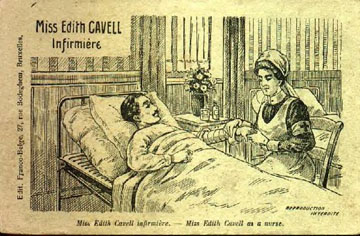 The British claimed that their hands were tied in the matter. The US government did put some pressure on Germany, reminding German officials that the country’s public reputation was already quite tarnished. Only one German intervened on Cavell’s behalf: Baron von der Lancken argued that Cavell should be treated with moderation because she had saved so many German lives. But General von Saubozweig insisted that Cavell be executed swiftly. Of the five people arrested in the case, only Cavell and one other were actually executed; the rest were later released.
The British claimed that their hands were tied in the matter. The US government did put some pressure on Germany, reminding German officials that the country’s public reputation was already quite tarnished. Only one German intervened on Cavell’s behalf: Baron von der Lancken argued that Cavell should be treated with moderation because she had saved so many German lives. But General von Saubozweig insisted that Cavell be executed swiftly. Of the five people arrested in the case, only Cavell and one other were actually executed; the rest were later released.
Fuel for Allied Propaganda
There are numerous accounts of nursing from World War I, such as Grace MacDougal’s Nursing Adventures: A FANY in France (1917) and Violetta Thurston’s Field Hospital and Flying Column: Being the Journal of an English Nursing Sister in Belgium and Russia (1915). But Edith Cavell would leave a different kind of legacy.
Rather than leaving an account of her own experiences, Cavell would unwittingly leave her mark on British and American propaganda during World War I. She became the most famous British female 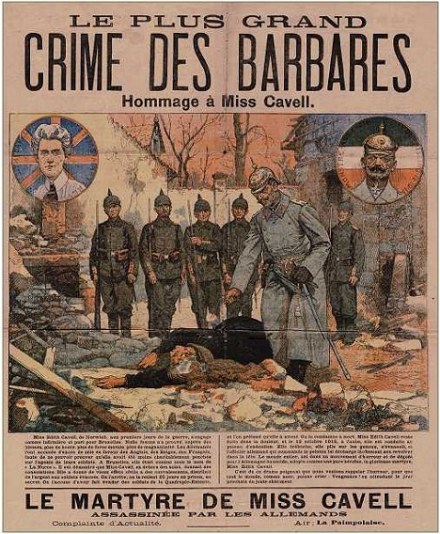 casualty of the war. The British government used her story to bolster military recruitment, while the US adopted Cavell to garner favorable sentiment toward the Allied effort–and to demonize the Germans.
casualty of the war. The British government used her story to bolster military recruitment, while the US adopted Cavell to garner favorable sentiment toward the Allied effort–and to demonize the Germans.
 Soon after her death, news reports of questionable veracity emerged. Even the American Journal of Nursing printed a spurious account of Cavell’s execution, in which Cavell had refused to wear a blindfold, fainted in the face of the firing squad, and been shot point blank by a German commanding officer. Eyewitnesses later indicated that this version was false.
Soon after her death, news reports of questionable veracity emerged. Even the American Journal of Nursing printed a spurious account of Cavell’s execution, in which Cavell had refused to wear a blindfold, fainted in the face of the firing squad, and been shot point blank by a German commanding officer. Eyewitnesses later indicated that this version was false.
Cavell is one of many figures in the history of nursing who have left an indelible mark on the world. She not only made strides as a figure in modern nursing, but also set herself apart as a remarkable humanitarian.

